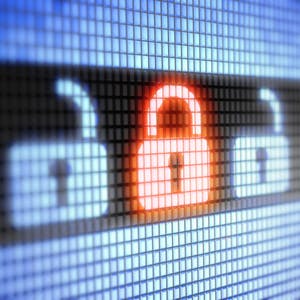Many of us have been guilty of using simple or obvious passwords at some time or another, but LinkedIn’s hacking last week should serve as a reminder of the importance of rethinking the security of our log-in information.
Following last week’s hacking incident, where 6.46 million LinkedIn passwords were stolen and posted on a Russian hacker forum, security firm Rapid7 has revealed the top 30 most hacked passwords with the number one being “link” closely followed by “1234”.
There’s a growing trend for internet users to create passwords using simplistic passphrases or words associated with the site, Rapid7 said, with the company urging businesses to ban the use of bad and obvious passwords or risk putting their online security and that of their data at serious risk.
Here are the top 30 most hacked LinkedIn passwords, as uncovered by an analysis of 165,000 of the affected accounts:
1. link
2. 1234
3. work
4. god
5. job
6.12345
7. angel
8. the
9. ilove
10. sex
11. jesus
12. connect
13. f**k
14. money
15. 123456
16. master
17. b*tch
18. d**k
19. Michael
20. Jordan
21. Dragon
22. Soccer
23. Killer
24. 654321
25. pepper
26. devil
27. princess
28. 1234567
29. iloveyou
30. career
To avoid having any of your business or personal accounts hacked in the future, here are some common mistakes people make when setting passwords:
1. Watch your language – curse words are not only weak, but it is also humiliating if you are ever the victim of having your password hacked.
2. Site related words- using words related to the site is an obvious choice for many, but a bad move. In the LinkedIn case, “link”, “job” and “work” all appeared in the top five most hacked passwords.
3. Consecutive numbers- 123456 or 654321 might be easy to remember, but they are also easy to hack.
5. Size matters- passwords should contain more than 6 letters.

